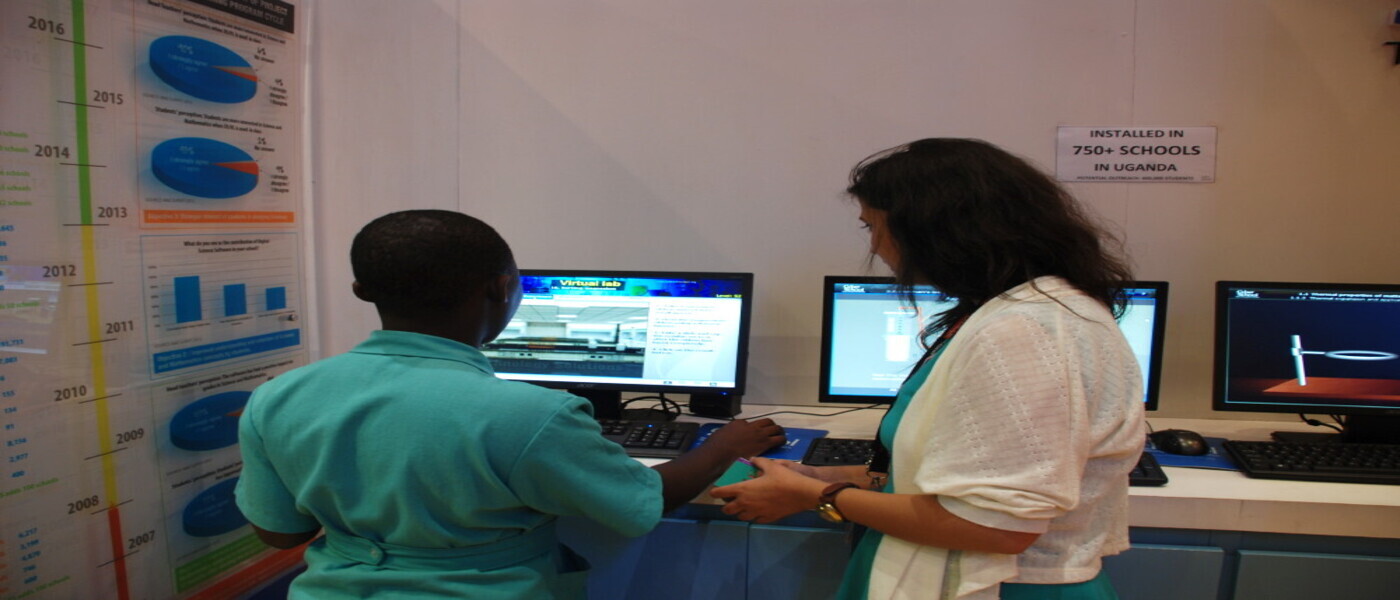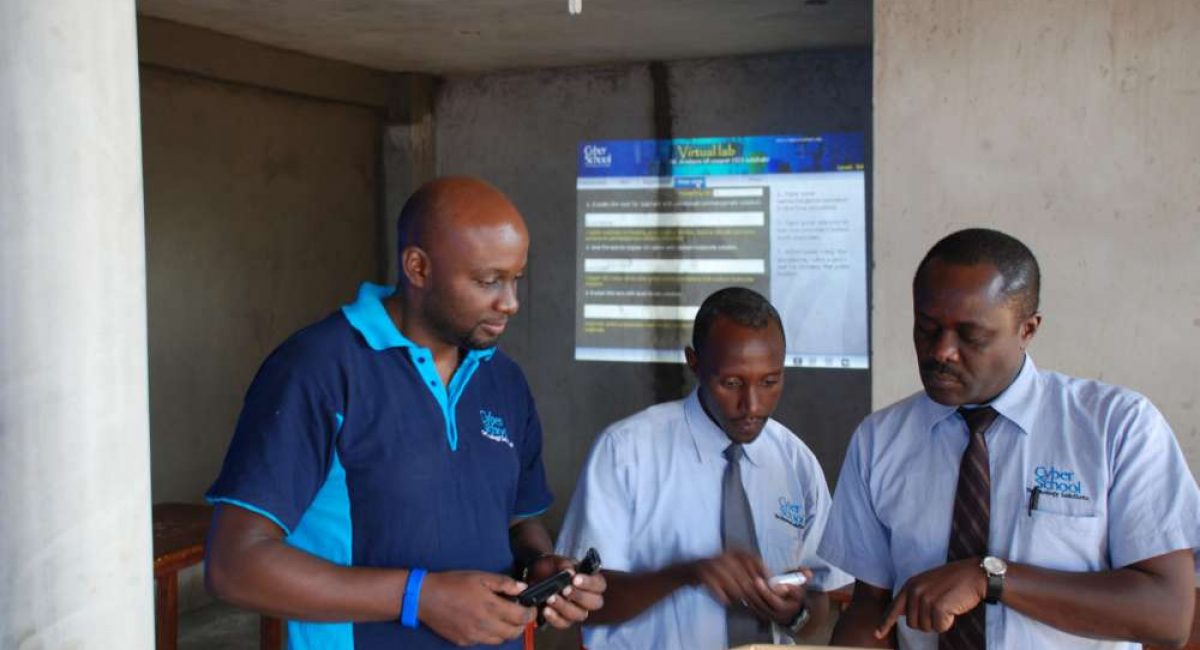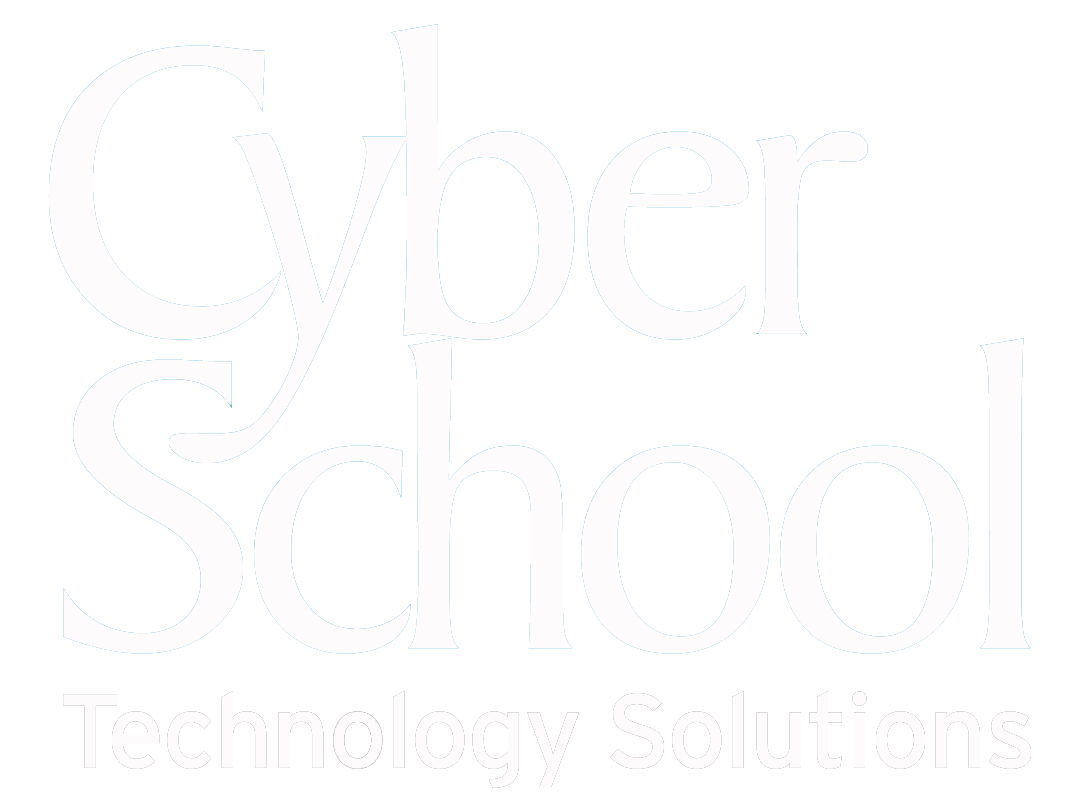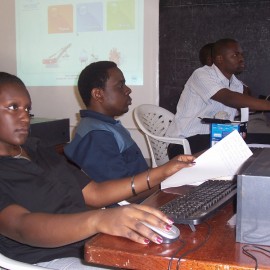e-Learning Africa Report:
ICTs boosting growth but
teachers
reluctant to change


By Samson Busiku
ICT is the key to improving education and thus boosting growth across Africa but there is still widespread reluctance among teachers, trainers and managers to abandon traditional methods in favour of new solutions.
That is one of the key findings in this year’s e-Learning Africa Report, which will be launched on 20th May 2015 at the e-Learning Africa conference in Addis Ababa by the Ethiopian Deputy Prime Minister and Minister of Communication and Information Technology, Dr Debretsion Gebremichael. A sneak preview of the report will also be given to African education and information technology ministers at the 8th e-Learning Africa Ministerial Round Table today.
Worryingly, say the report’s editors, Harold Elletson and Annika Burgess, our survey of 1500 African education and ICT professionals shows that, despite the importance of ICT in education, there is insufficient awareness in many schools, colleges, institutions and government departments of the benefits it brings.
57 per cent of those surveyed by eLearning Africa said that educators in their own countries are still not sufficiently aware of the benefits of using ICT in education although 95 per cent agreed that ICTs are the key to improving education in their own country.
Reluctance, according to the report, was a major theme emerging from teachers and educators; many revealed that their attitude towards ICTs in education was not always shared throughout their institution.
The report identifies a number of obstacles, preventing the greater use of ICTs in education and training. These include the cost of services and equipment, poor infrastructure and a lack of awareness about how best to use ICT for teaching and learning. 74 per cent of teachers also said they were not provided with enough support to improve their digital literacy. Only a third (33 per cent) of primary school teachers said they had been properly taught digital skills.
Whilst the failure of teachers and educational institutions to take up the technological challenge is disappointing, says Elletson, there is little doubt that in many African countries, the contribution ICTs are making to improving training is having a significant impact on performance and growth in key sectors.
In the agricultural sector, for example, 91 per cent of survey respondents involved in farming say that ICTs have led to increased yields, 87 per cent say they have helped them to develop new business opportunities and 71 per cent say they have used them to adopt new farming techniques. They may be having a wider environmental benefit too 90 per cent say that ICTs contribute to better food security and sustainable development in their region.
It is clear that, with a greater focus on using ICTs effectively to improve education and training, African economies can benefit substantially, says Burgess.
The Report concludes that raising the awareness and skills of teachers and learners is crucial for ICT integration to be successful. A lack of awareness about the benefits, as well as the lack of digital skills, leads to reluctance to embrace them.
Source: PC Tech Magazine

8. Macs are PCs, just PCs running OS X rather than Windows, or Linux
The above being true, it’s impossible to say that they’re better than a Windows PC, so I’m not going to touch that one. As a Mac user myself, I think it’s probably best left to get the answer from our Windows Editor, Tina, as she tries out a Mac after being a longtime PC user.
What I can address, however, is whether they are overpriced junk, or even if they’re overpriced at all. While they certainly aren’t budget PCs, the so-called Apple tax has been effectively eliminated and the price for most Apple devices is actually quite comparable to their Windows counterparts. For example, if you compare the MacBook Air to higher-end, light-weight, ultra-slim Windows laptop like the Lenovo Yoga 3 Pro, you’ll see that the price is actually quite comparable. The Mac Mini is another great example, as prices between it and comparable units from Dell and others are pretty similar.
We even tried to see if it was worth building a homemade Mac Pro, or just buying one online, the results might surprise you.
9. To Protect Yourself From Vulnerabilities, Use Firefox/Safari/Chrome/IE
X Browser being safer than Y browser is a comparison that really doesn’t have much to do with the consumers who use it. Browsers are simply an execution environment for JavaScript, and as such they’re all equally at risk to exploits and attacks. It’s also important to note that most browser-based attacks are through browser add-ons and plug-ins, not the browser itself.

